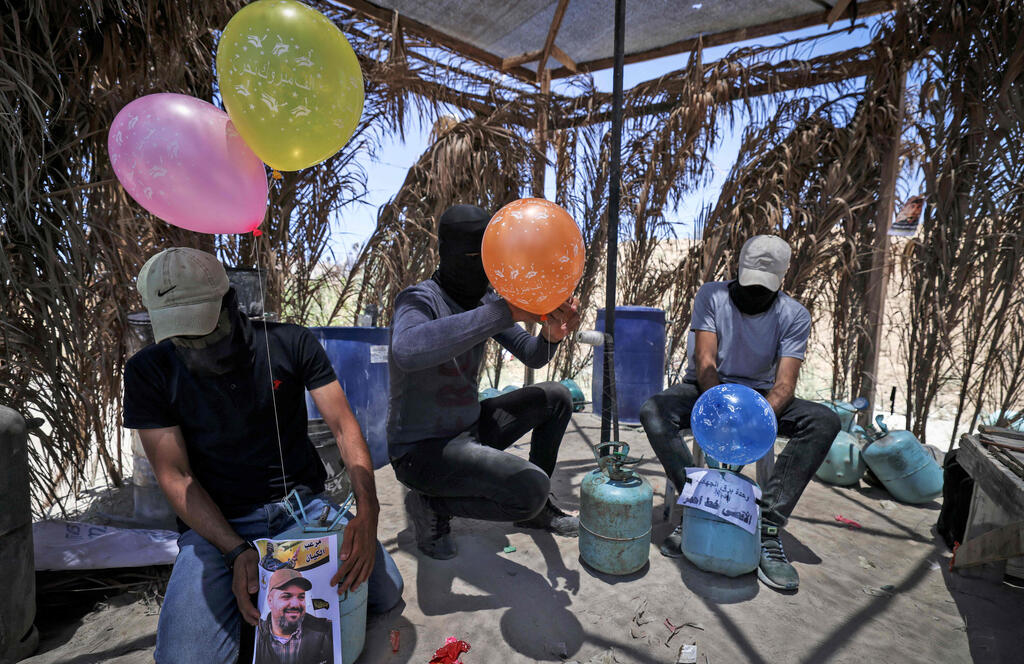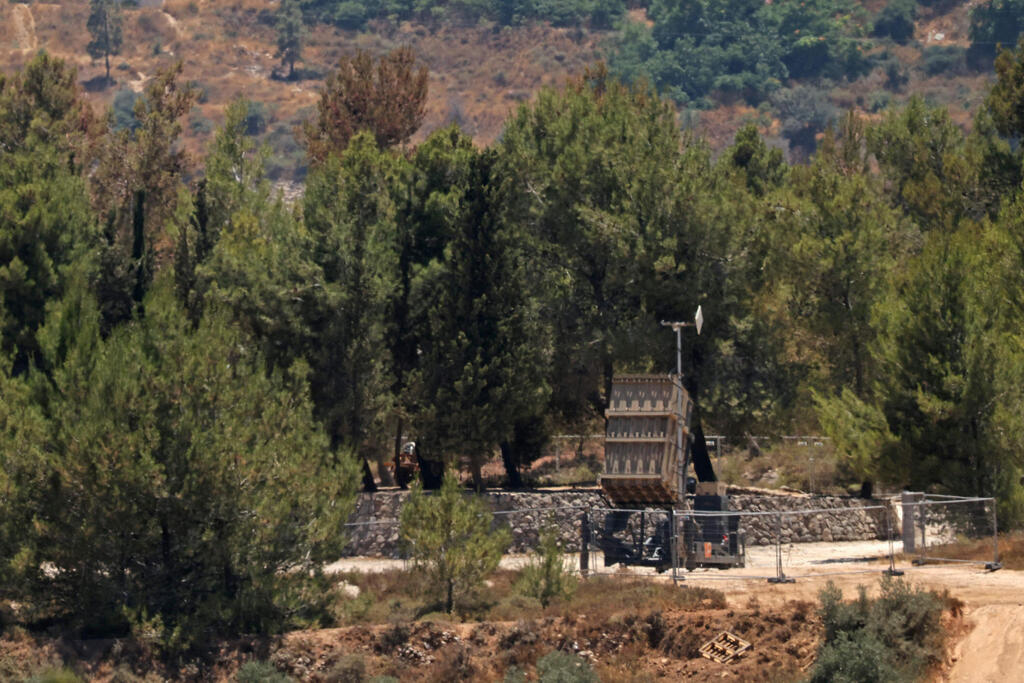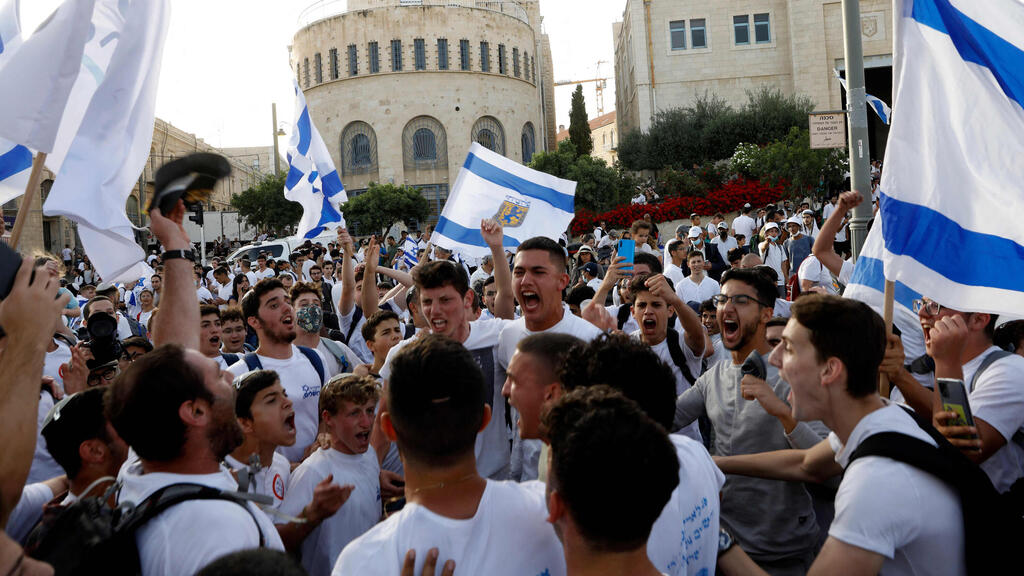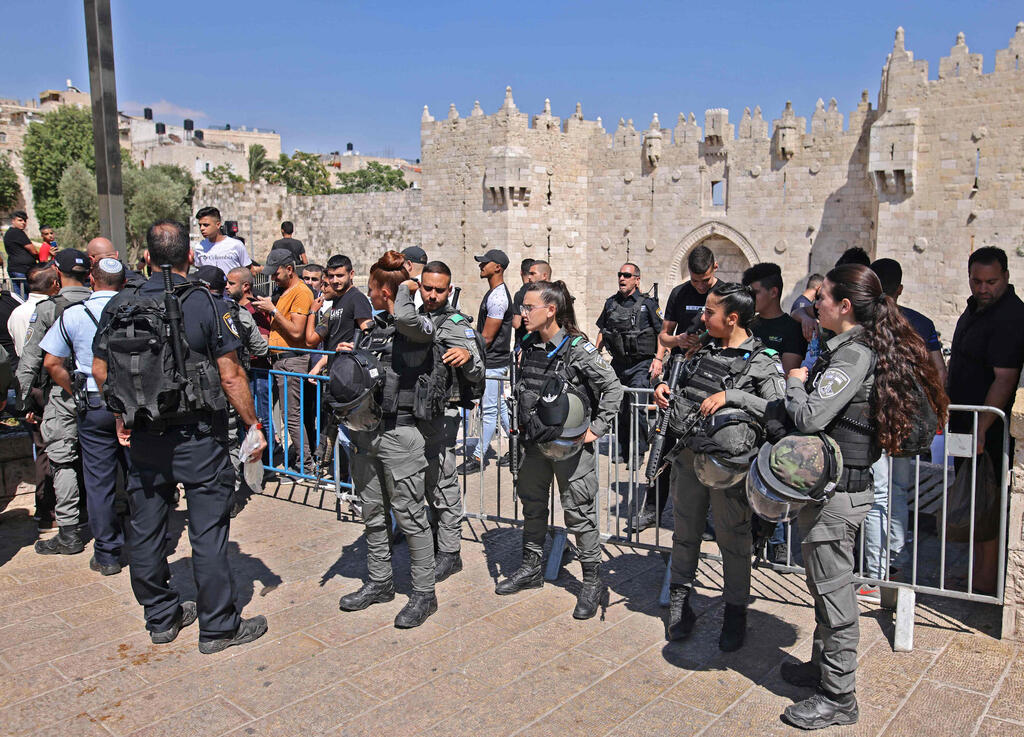Getting your Trinity Audio player ready...
Israeli forces clashed Tuesday with a small number of Palestinian protesters near the Gaza border fence as tensions rose over a planned right-wing march in Jerusalem later in the day.
One Palestinian was lightly hurt by a gunshot wound in his leg during the riots in the southern Strip, the IDF said.
4 View gallery


Masked members of Islamic Jihad prepare incendiary balloons to send into Israel from Gaza, June 15, 2021
(Photo: AFP)
Tensions rose ahead of a controversial flag-waving procession by right-wingers in Jerusalem that risked igniting tensions with Palestinians in Jerusalem and on the West Bank as well as across the Gaza border.
Hamas warned that it would launch rockets into Israel if the march went ahead, but a Palestinian source told Ynet that the terror group that rules Gaza instructed the Palestinian factions there to refrain from rocket fire and limit their activities to protests on the border, including igniting fires in nearby Israeli fields with the use of incendiary balloons.
Three separate fires had already broken out in the area Tuesday, all suspected to have been caused by incendiary devices from Gaza.
4 View gallery


The Iron Dome missile defense system was bolstered in the south ahead of the Jerusalem parade
(Photo: AFP)
Extra batteries of the Iron Dome missile defense system were deployed to the south of the country and to other locations following the warning from Hamas that it would launch rockets over the parade .
IDF Chief of Staff Aviv Kochavi said late Monday that the situation due to the march was volatile.
"We are preparing for renewed fighting," he said, warning that Israel's response to rocket fire from Gaza would be more severe than during the bitter May conflict.
The annual march, known as the Flag Parade, usually takes place in May but was cut short this year by a barrage of rockets on Jerusalem from Gaza that signaled the start of an 11-day conflict.
4 View gallery


The flag parade was interrupted last month after Hamas fired rockets at Jerusalem
(Photo: AFP)
The new public security minister, Labor's Omer Barlev, decided that the event could go ahead Tuesday, arguing that in a democracy, citizens have the right to demonstrate.
One of the organizers of the parade said the event would follow the route it is provided by officials.
"We will march, thousands of us, with flags where we're told. Anywhere we're told not to march - we won't march," Matan Peleg told Army Radio.
Police approved a route that will pass by the Damascus Gate entrance to the Old City, where Palestinian protesters repeatedly clashed with Israeli police over restrictions on public gatherings during the Muslim holy month of Ramadan in April and May.
But the crowd will not pass through the gate into the heart of the Muslim Quarter, a crowded Palestinian neighborhood with narrow streets and alleys. Instead, police said they are to walk around the ancient walls of the Old City and then enter through Jaffa Gate, a main thoroughfare for tourists, head toward the Jewish Quarter and on to the Western Wall, the holiest site where Jews can pray.
4 View gallery


Security forces at the Damascus Gate on Tuesday ahead of the flag parade
(Photo: AFP)
Mansour Abbas, whose Ra'am party is the first Arab faction to join a governing coalition, told a local radio station he was opposed to any "provocation," adding that "anyone who has watched and followed this parade knows what its purpose is."
Also assailing the march as a "provocation," Palestinian factions called for a "Day of Rage" in Gaza and the West Bank.
Palestinian protests were planned for 6pm across the Gaza Strip, and Hamas and Palestinian President Mahmoud Abbas's Fatah faction have called on Palestinians to flock to the Old City to counter the march.
The U.S. Embassy in Jerusalem prohibited its employees and their families from entering the Old City on Tuesday.
"Due to calls for a Jerusalem Flag March in Jerusalem’s Old City, U.S. government employees are prohibited from Jerusalem’s Old City on June 15. U.S. citizens are strongly encouraged to take appropriate steps to increase security awareness," the embassy said in a statement.

